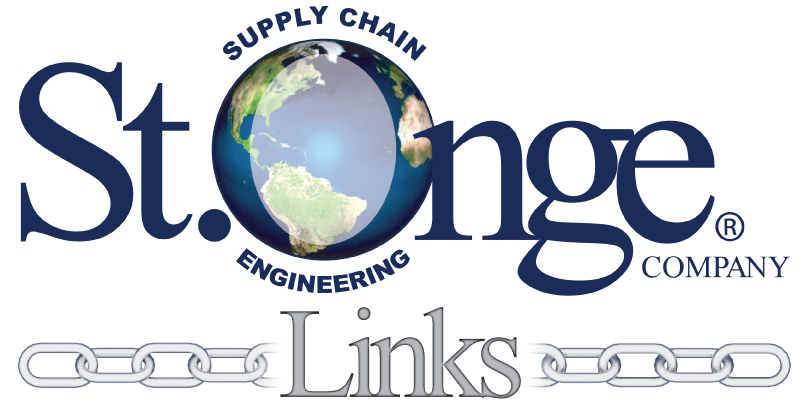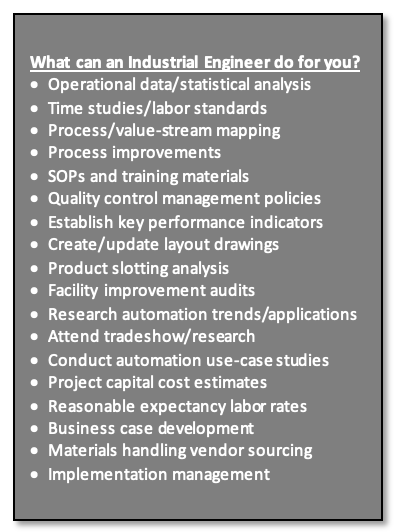 Strengthening your supply chain one link at a time.
Strengthening your supply chain one link at a time.
 As a consulting firm specializing in supply chain, distribution, and manufacturing, St. Onge Company boasts a team including highly skilled and experienced Industrial Engineers. Our employees have diverse backgrounds, including experience in industry roles, as project managers for material handling companies, within third-party provider operations, as software engineers, fellow consultants, and recent college graduates.
As a consulting firm specializing in supply chain, distribution, and manufacturing, St. Onge Company boasts a team including highly skilled and experienced Industrial Engineers. Our employees have diverse backgrounds, including experience in industry roles, as project managers for material handling companies, within third-party provider operations, as software engineers, fellow consultants, and recent college graduates.
Industrial Engineers play a vital role in maintaining an efficient process, analyzing storage/material handling technology, developing labor standards, and performing projects focused on continuous improvement. Most Industrial Engineers possess an inherent ability to observe operations and quickly identify improvements.
My personal journey started 31 years ago as an Industrial Engineer at Haggar Clothing Company, where I worked alongside a small Industrial Engineering team focused on manufacturing and distribution operational improvements. My responsibilities included conducting time studies, maintaining labor standards, updating standard operating procedures, developing training materials, documenting facility layouts, and executing various process improvement projects.
Throughout our more than 40-year history, St. Onge Company has collaborated with companies employing various Industrial Engineering team structures. While some teams are large, exceeding 10 individuals, others operate without any Industrial Engineers. The structure of Industrial Engineering teams is influenced by the size and complexity of a client’s network and operations. Larger networks typically adopt corporate-based structures, whereas smaller networks might locate engineers at each site. Many organizations use a hybrid approach, with a corporate home base and engineers assigned to a region. No matter the structure, an Industrial Engineer should spend the majority of their time within an operation to drive the most value to an organization.
When working with a client’s Industrial Engineering team, we collaborate to learn about current operations and past studies and bring a new perspective on improvement opportunities. This collaborative exchange of knowledge contributes significantly to the success of our projects. While many companies only consider consultants for large-scale projects, we have clients requesting annual support to complement their Industrial Engineering team, or to fill the void of not having a team. St. Onge Company brings a wide range of experience, knowledge, and capabilities to complement the team.
We advocate for our clients to maintain in-house Industrial Engineering teams, noting the success of our projects when aligned with their deep familiarity of operations, personnel, and current state technology. However, recognizing that some companies may feel too small for an in-house team, we’ve achieved equal success by working directly with operations and management on analysis, processes, and solutions. As noted, in some situations, St. Onge Company maintains a small staff of client-assigned Industrial Engineers to provide on-going engineering services.
We have found that offering on-going Industrial Engineering services to our clients is a mutually beneficial arrangement. This approach has not only allowed clients to realize the immediate benefits of Industrial Engineering, but has also facilitated the establishment of in-house teams. In essence, this blog aims to underscore the benefits of having an in-house Industrial Engineering team or partnering with external consultants like St. Onge Company. We encourage readers to contemplate the long-term advantages of investing in Industrial Engineering.
—Norm Saenz, St. Onge Company